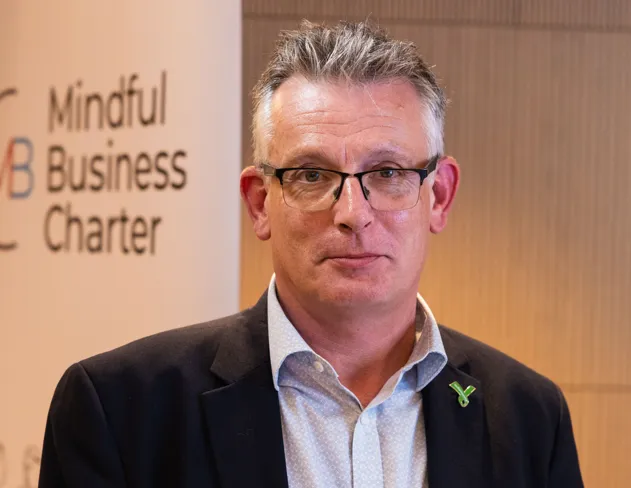This has been put together by Charlotte Clegg Msc, MBACP, a psychotherapist and Community Engagement Executive at MBC.
Designed for law firms, in-house counsel and corporates, the white paper explores how prioritising wellbeing, and embedding MBC’s principles can directly enhance organisational performance, as well as boosting profitability, strengthening client relationships, and improving talent retention.
As the legal and corporate landscape rapidly evolves, and faces new challenges, the next generation of legal professionals is seeking more than just competitive salaries; they want purpose, balance and workplaces that support mental health and wellbeing. At the same time, the rise of AI could prompt a fundamental rethink of the billable hour model, opening the door for new ways of working. Clients are increasingly looking to partner with firms that reflect their own values, including a genuine commitment to workplace wellbeing. What was once seen as a ‘nice to have’ is now a strategic imperative.
The white paper highlights the legacy of the Cravath Model, under which billable hours have long been the cornerstone of legal business structures. This model has often contributed to a culture of long hours, high stress, and burnout, with presenteeism and unsustainable workloads ultimately undermining both productivity and profitability.
The report finds that firms investing in wellbeing consistently outperform their competitors, delivering higher revenue growth and greater staff loyalty. Critically, the costs of inaction are steep – with lost productivity, absenteeism, and attrition equating to more than 10% of annual staffing costs in some firms.
The Mindful Business Charter offers a practical, evidence-based framework for firms ready to take action. By fostering open dialogue, embedding sustainable working practices and improving communication both internally and with clients, MBC empowers organisations to create healthier, more effective workplaces, with tangible business benefits.
You can read the full report here: The Business Case for Wellness
Richard Martin, CEO commented: “The research is clear, having a healthier workplace leads to more productive employees and ultimately better returns in the long-run. With the legal workplace facing a pivotal moment of change with AI, pressures from clients, and a new talent pool, this really is the time for change in the industry, with the adoption of frameworks that support employees. We hope at MBC we can be driving this change with the charter, and create a healthier future for the industry.”
Charlotte Clegg, Community Engagement Executive at MBC, who authored the report added: “There is sometimes a misconception that increased focus on wellbeing will negatively impact revenue, or that there isn’t any real evidence on the matter. This simply is not the case – there is plenty of business focused evidence that preventative systemic wellbeing strategies increase the bottom line. This white paper is an opportunity to get that evidence in front of the decision makers who can make the positive change we need so we can all have healthier, more productive workplaces.”


